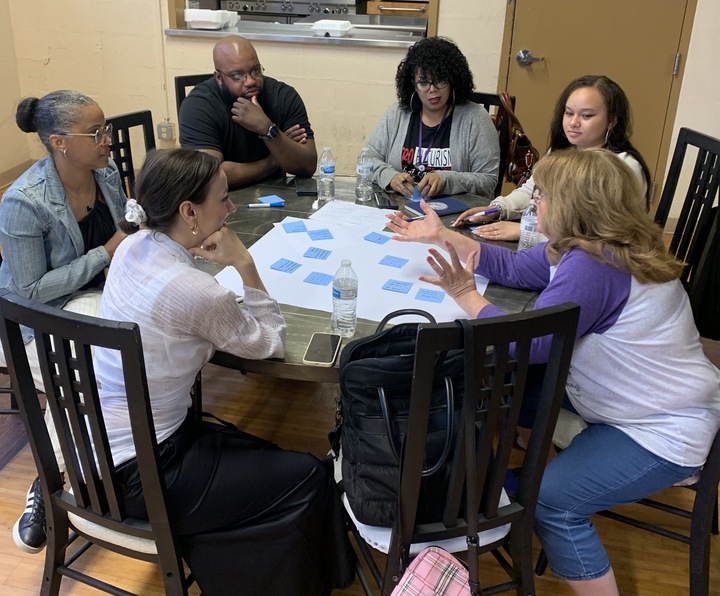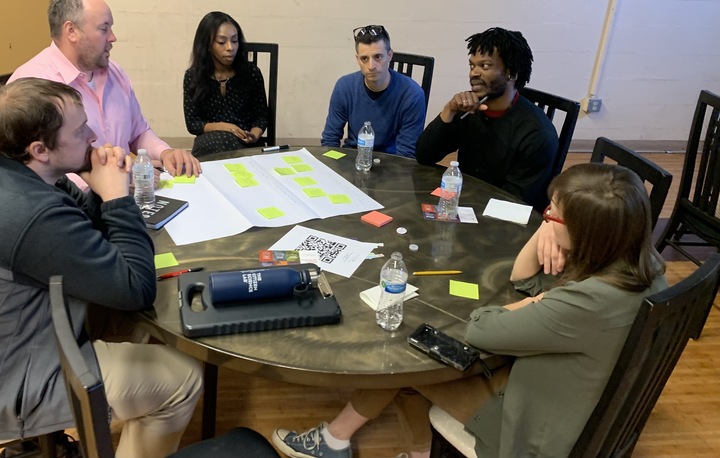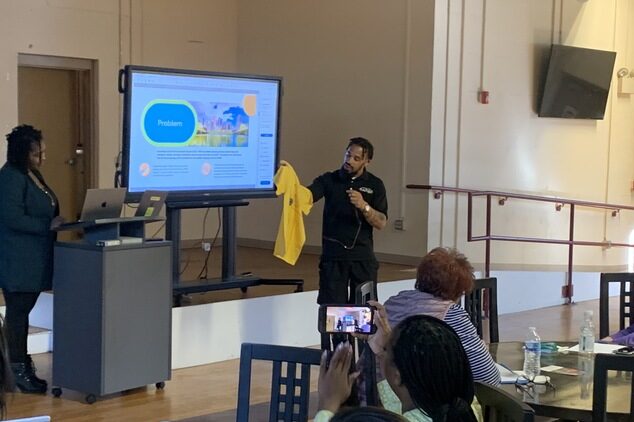With over 30 attendees, we first explored what our collective goals were for 2023. Not surprisingly our group was hyperfocused on ensuring that there is equitable access to STEAM education for all students and that there would be strong representation of underrepresented groups, including black and brown youth and women. Many of our attendees wanted to ensure that these STEAM engagements across the life span led to tangible entry points in the real world–and many more were looking forward to the collaborative work together that it undoubtedly will take to actualize these dreams, whatever they may be.

We also saw commonality in the challenges members of our ecosystem face, both in past years and what was anticipated in 2023. Across the ecosystem, we still see gaps in the resources necessary to truly ensure equitable access to STEAM education and opportunity, especially in historically marginalized communities. We also do not always have access to the funding necessary to truly change the lives of so many we work tirelessly and selflessly to serve. Lastly, in a theme that would emerge later in our discussion–we collectively recognized the challenge related to the absence of employers and the leaders of industry in being at the table and intimately involved in the efforts of our ecosystem.
Throughout the remainder of the meeting we were able to highlight the diverse components that make up our ecosystem and drive the effectiveness of what we’ve been able to build here in Pittsburgh and Southwestern Pa. Vaughn Rivers, from Center That CARES, highlighted the community-based work they carry out in the Hill District, essential to ensuring that gaps in access are directly addressed. We shared information on the changes to the Science standards in Pennsylvania and what that would mean for our ecosystem and alignment of our programming in and out of schools. We then were joined by Lindsay Powell from Innovate PGH who talked about the Build Back Better Challenge and the innovation that would be fostered by the region’s nearly $63 million dollar award. We followed Innovate PGH’s presentation with an activity each group completed at the table asking: How can we better connect with industry and who do we need at the table?

The ideas and responses emanating from this discussion I believe set the tone for our work ahead in the coming years. Many highlighted the need to directly connect youth and community-based organizations to opportunities in industry, the need to host formal events that strategically engage industry leaders and partnerships, the incorporation of work-based learning, and the development of a STEAM + industry partner advisory council through the Remake Learning network. I look forward to following up with each of you, and bringing our core partners needed to achieve new heights for our ecosystem together as we advance in 2023
